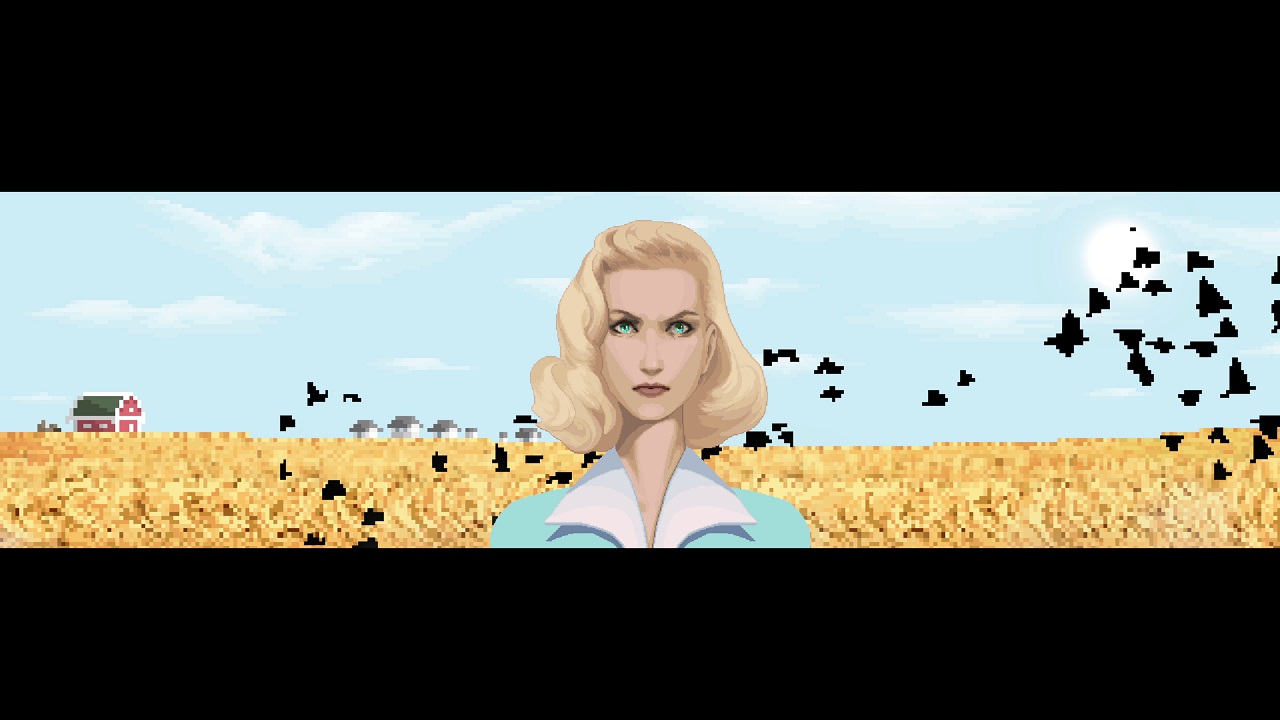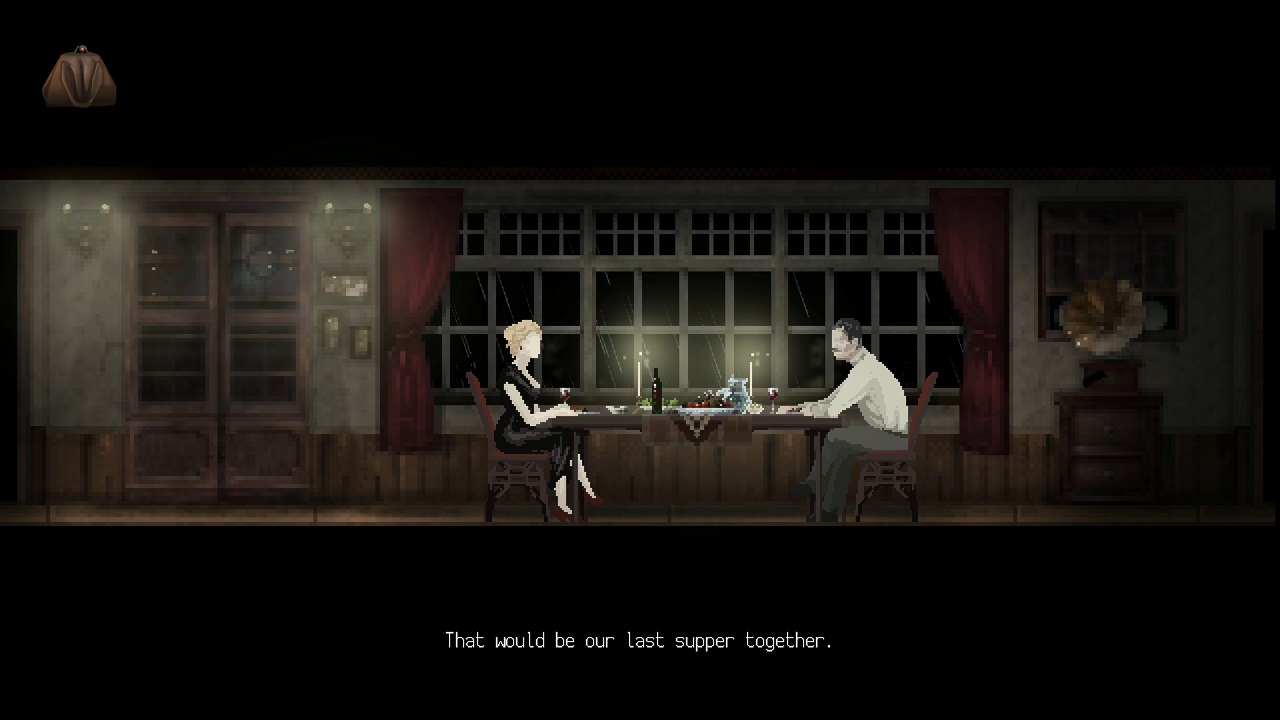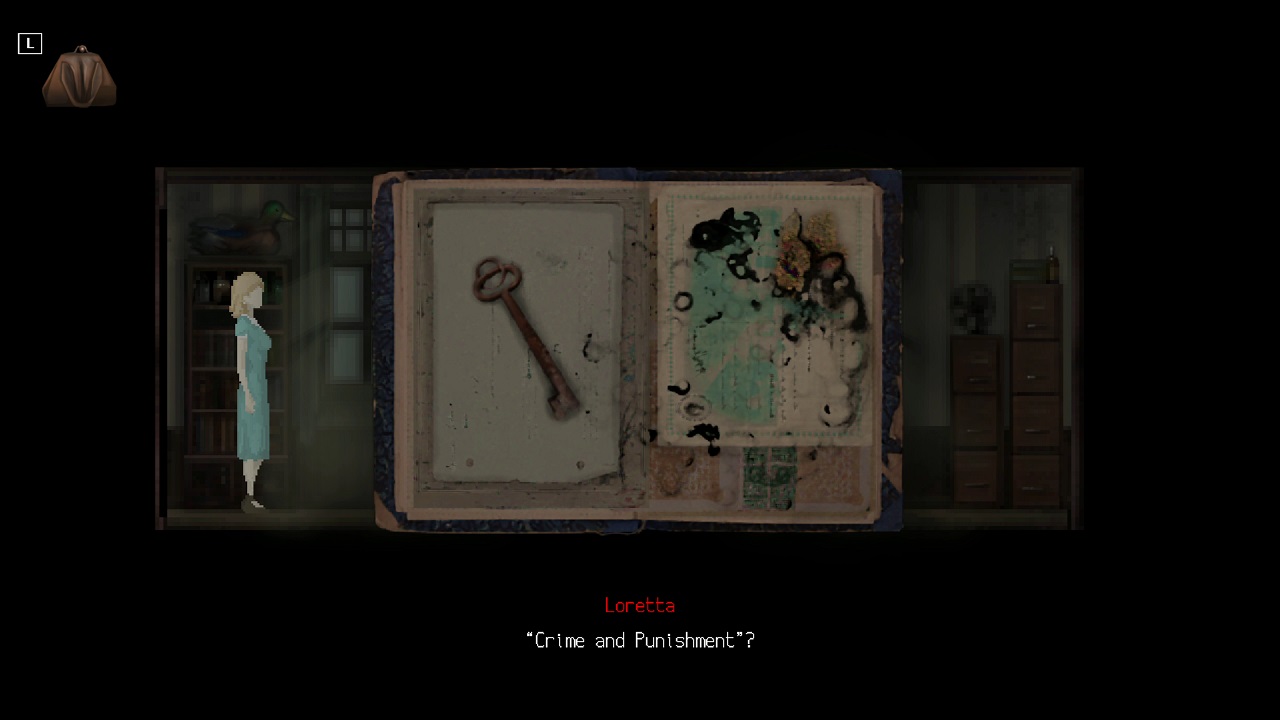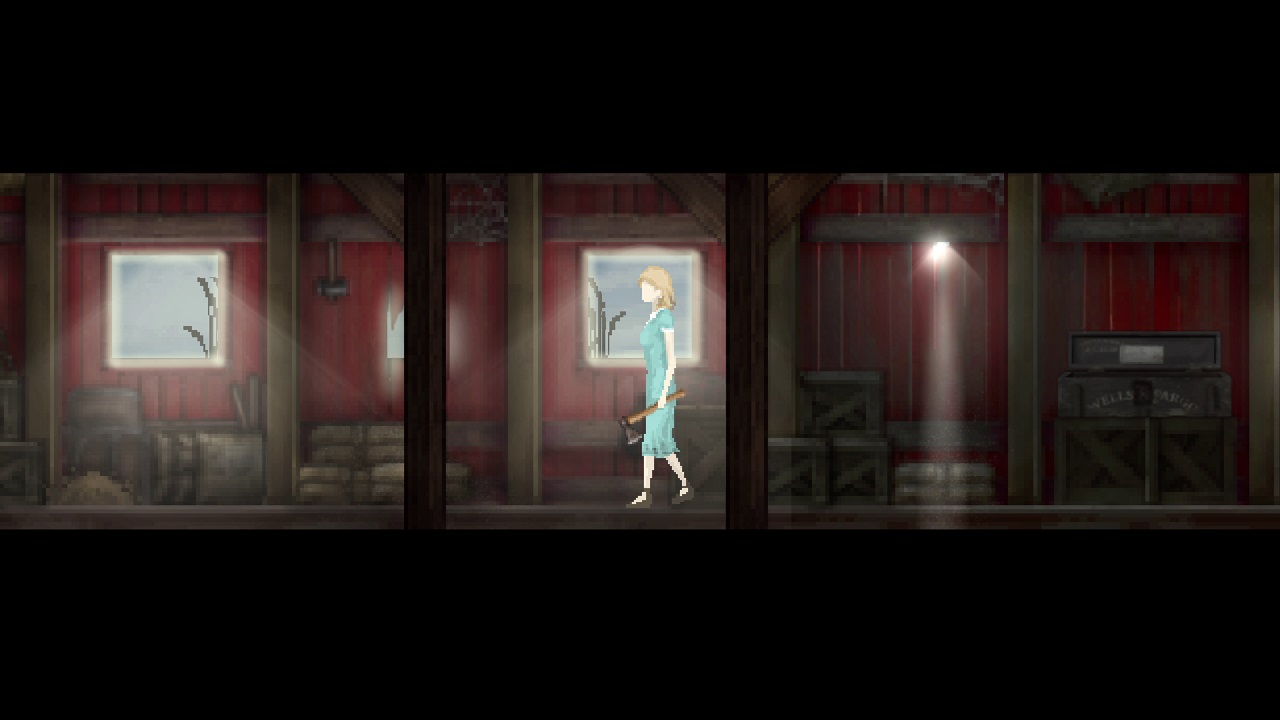Hell hath no fury like a woman moved to a farm.
Listen, I feel bad for Loretta. I really do. Life hasn’t been kind to her. Neither has her husband. Or her neighbors. But does all of that justify the numerous bad decisions she’s going to make in this game? Well, that’s the thing. For the most part, those decisions are up to the player.
Loretta (the game) is an adventure/puzzle crime story set in the 1940s. Loretta (the woman) is a housewife who finds her New York City lifestyle stripped away and replaced by farm living in the rural south. Her husband, Walter, is a writer, which immediately spells trouble. (Fictional writers are written by real writers, after all, and real writers always want to make themselves seem much more interesting than they really are.)
So, we quickly learn that Walter is a jerk. He’s not faithful (which Loretta can forgive), but his problems go deeper than that, causing Loretta to feel trapped in a life she didn’t want. But the more she learns about her cage, the more she starts to see a way out. She’ll just have to do some bad things to get there.
Of course, this being a tribute to pulp fiction, you know things are going to spiral out of control. The fun part is that you get to determine how and when that spiraling occurs. We immediately learn Loretta’s husband is missing, and we have the option to kill the first guy who stops at the house to check in on him. Before you think, “Wait, this guy hasn’t really done anything,” you have to ask yourself what can he do by game’s end?
A lot of characters will roll in and out of the story this way. The local sheriff, an angry neighbor, your step daughter and her boyfriend, Walter’s mistress and previous business partners—the narrative will put their fates in your hands, but not without some guidance. Loretta is having some mental issues, and she sees things that are either twisted from reality or aren’t there at all. For a low-resolution game, Loretta does a great job of presenting these moments in effectively creepy ways, ala The Shining.
For example, as Loretta’s driving home alone with just her darkening thoughts, she stumbles upon a gas station that she’d never even noticed before. The clerk seems to unwittingly support her murderous intentions, and even freely provides her with the means to do it. Did this really happen, or is Loretta just preparing herself for what she’s about to do? It’s worth considering, because the further we get into the game, the more we learn that Loretta’s past is perhaps darker than her husband’s.
Of course, the game isn’t all about deciding who to kill and who to let live. As with any adventure game, there are plenty of puzzles to solve and dialogue options to work through. Gameplay involves walking from room to room, driving from location to location, to trigger plot points and unveil puzzle elements. These elements are lighter than in most adventure games, however, allowing the story to carry the weight. Inventory management is minimal; you can’t even pick up things that you’re not supposed to quickly use.
There’s a puzzle where you have to replace fuses, for example, and those fuses don’t even show up until you know you need them.
The conversation options are also guided. If they’re yellow, things keep moving along. If they’re red, things are about to get bloody. In other words, Loretta is less about solving puzzles and more about asking you to make some difficult decisions.
There are also some metaphorical mini-games to work through. Words flow on the screen for you to deflect away. Hands (veins?) reach toward an egg that you must defend with scissors. These mini-games come with no instructions, so you have to figure out what’s going on before you actually try to do it. A couple took me a few tries to complete, but they were otherwise quick and non-invasive.
The game can be completed in a few hours, and thankfully so. I tried to keep Loretta’s hands clean early on, but changed my approach towards the end. My decisions didn’t go well for Loretta, but the game’s short run time makes it conducive to multiple playthroughs. You’re not just getting different endings, either. After my first playthrough, at least three major elements were left completely unresolved. Different decisions throughout the game will affect what gets answered and what doesn’t, so you really can get a significantly different story when you try a different approach.
You also have the option to play it in black and white, which is pretty cool.
The whole package—the wonderful audio, retro visuals, and creepy vibe—creates an experience that is fun to revisit. And if you have a decent knowledge of literature (especially of the pulp and horror varieties), you’ll enjoy the various references scattered about (the motel guest list is a delight).
Loretta is the kind of the game you’ll want to play on your own, then watch as others play, too. Whether you choose to help Loretta responsibly come to terms with her past or to actually become the voice in her head will be up to each gamer…and could be useful information for your own therapist.
Review: Loretta (Nintendo Switch)
Very Good
Loretta is an intriguing, often chilling adventure game throwback to cinema noir and pulp fiction. Complex characters and even more complex plot layers stack for an experience that’s meant to be enjoyed multiple times. Its themes are not for the faint of heart, but we could say the same about life in general, can’t we?






